Sampson Street runs from
York Street, Hanley and merges into Century Street which then through to Cobridge Road, Etruria.
It was originally
Clarence Street but was renamed in the early
1950's to Sampson Street.
At the junction of Sampson
Street and Century Street was crossed by two railway lines - the main main
North Staffs Railway 'Potteries Loop Line' and a mineral railway line
which ran to a coal wharf on Waterloo Road and also to Burslem.

Brook Street (now Century
Street) around 1890
Looking towards Hanley, to
the left was Clarence Street and to the right - the continuation of Brook
Street.
In between the two roads
was the Pearl Pottery and the Brook Street Pottery - the bottle kilns can
be clearly seen.
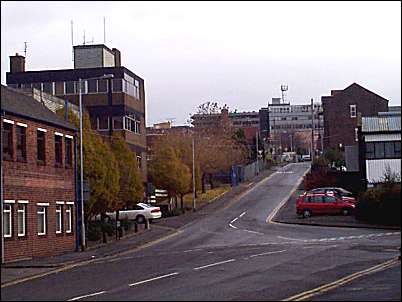
This 2000 photo show
Sampson Street to the left, Century Street goes off to the right.
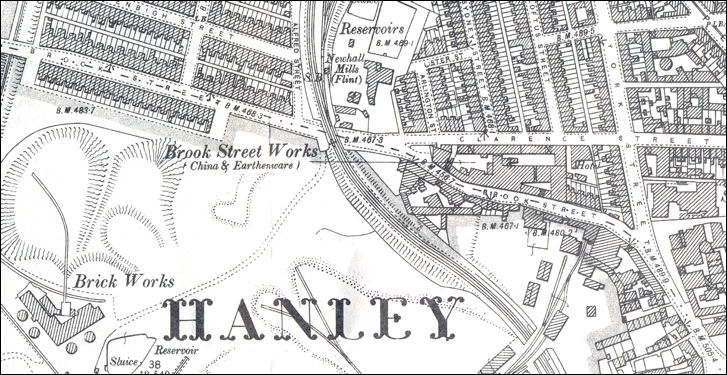
Brook Street and Clarence
Street - 1898 OS map
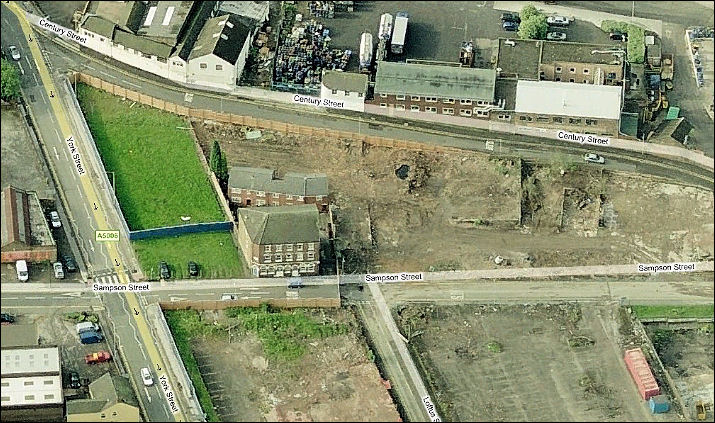
Century
Street and Sampson Street
MS Live Earth - 2008
this view is in the opposite direction to
the 1898 map above
(were Brook Street and Clarence Street)
This area was cleared in
2007/8 for development as a retail and leisure site. In the centre of
the map is the Granville Hotel - this hotel is now demolished.
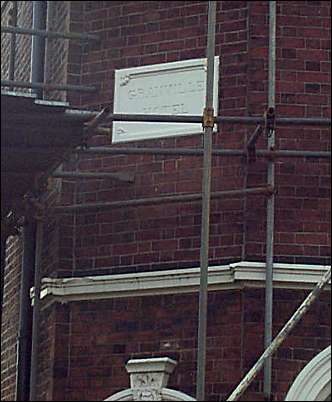
Name stone on the
corner of the Granville Hotel
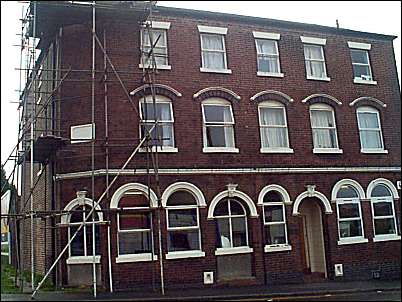
the Granville Hotel
Earl Granville (1815-91)
was a landowner, property and colliery owner.
In the Potteries he owned
Shelton collieries and was the principal owner of Etruria Iron Works.
His properties in Hanley
paid nearly one third of the rates of the town. He supported the local
school of art, founded Granville schools at Cobridge in 1854, in the
mid-1850s built two model rows of cottages for his workers at the
southern end of Waterloo Road and a hotel at the junction of Clarence
Street and York Street.
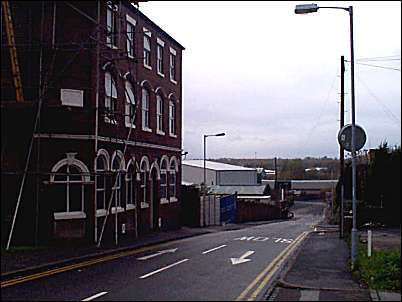
looking down Sampson Street from York Street
Members of the Hall family who ran the 'Model
Lodging House' in nearby Union Street, were also associated with the
Granville Hotel in Clarence Street
photos: Nov 2000
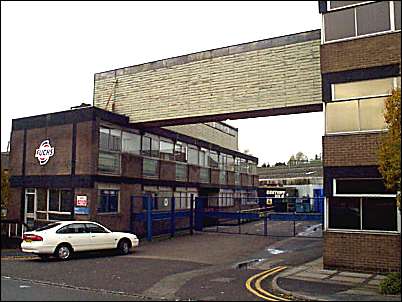
Fuchs lubricants -
between Sampson Street and Century Street
The
Head Office of Fuchs UK is
based in Hanley, Stoke-on-Trent. The plant is the largest independent
oil plant in the UK.
Originally Walkers Century Oils (hence 'Century Street')
Century Oils developed from a partnership founded in Stoke-on-Trent
in 1874 the brothers William and John Walker.
The genesis of the Walker business came from the discovery of
commercially exploitable deposits of crude oil in the seams of a local
colliery. The Walker Brothers distilled crude oil at a refinery built at
Cobridge.
The Century Oil Works was located the heart of the potteries where an
abundant supply of of coke and coal was required to fire the kilns, and
much coal tar was available for processing. Walker's produced a range of
products including axle grease, engine oil, paraffin, lamp oil and
candles. Their tar wagons would have commonly been seen in local goods
trains on the Potteries Loop Line of the NSR.
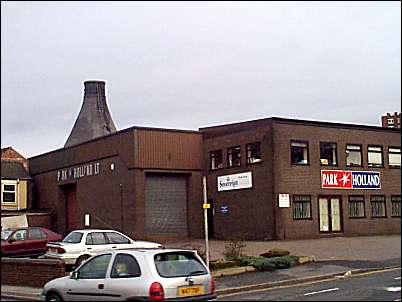
the bottle kiln of
Dudson's pottery works
the photo taken from the
junction of Sampson Street and York Street.
photos:
Nov 2000 |
![]()